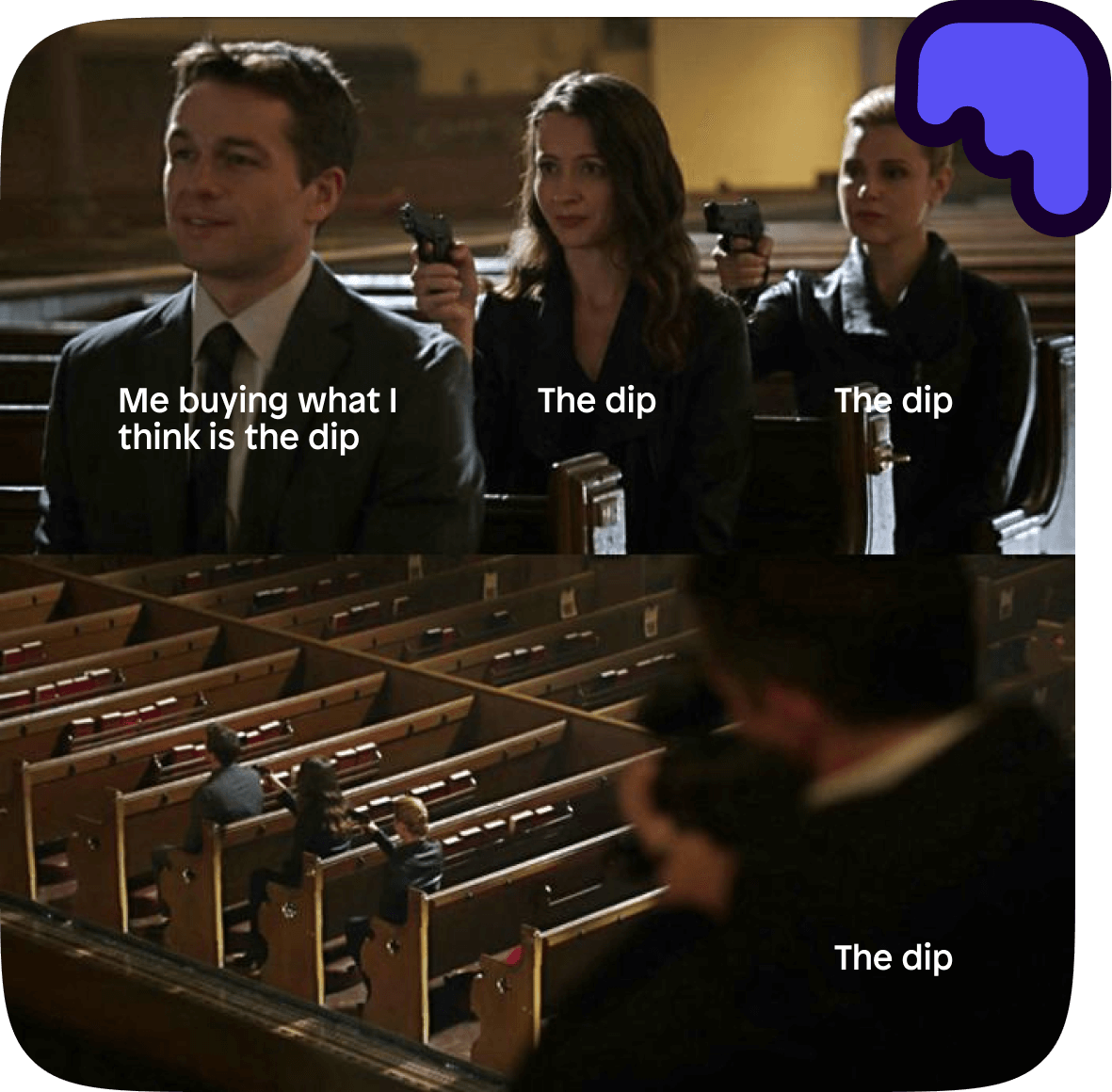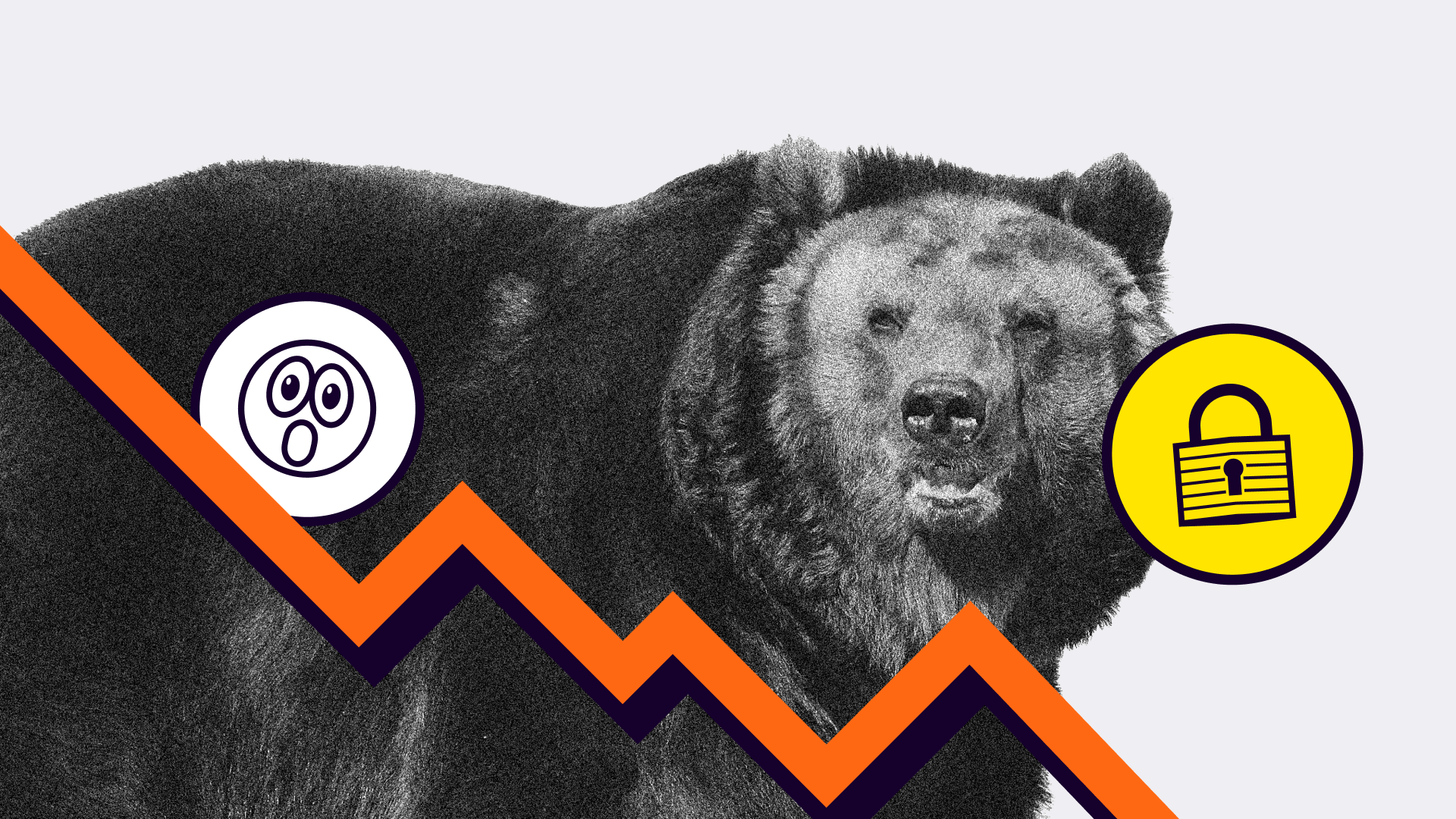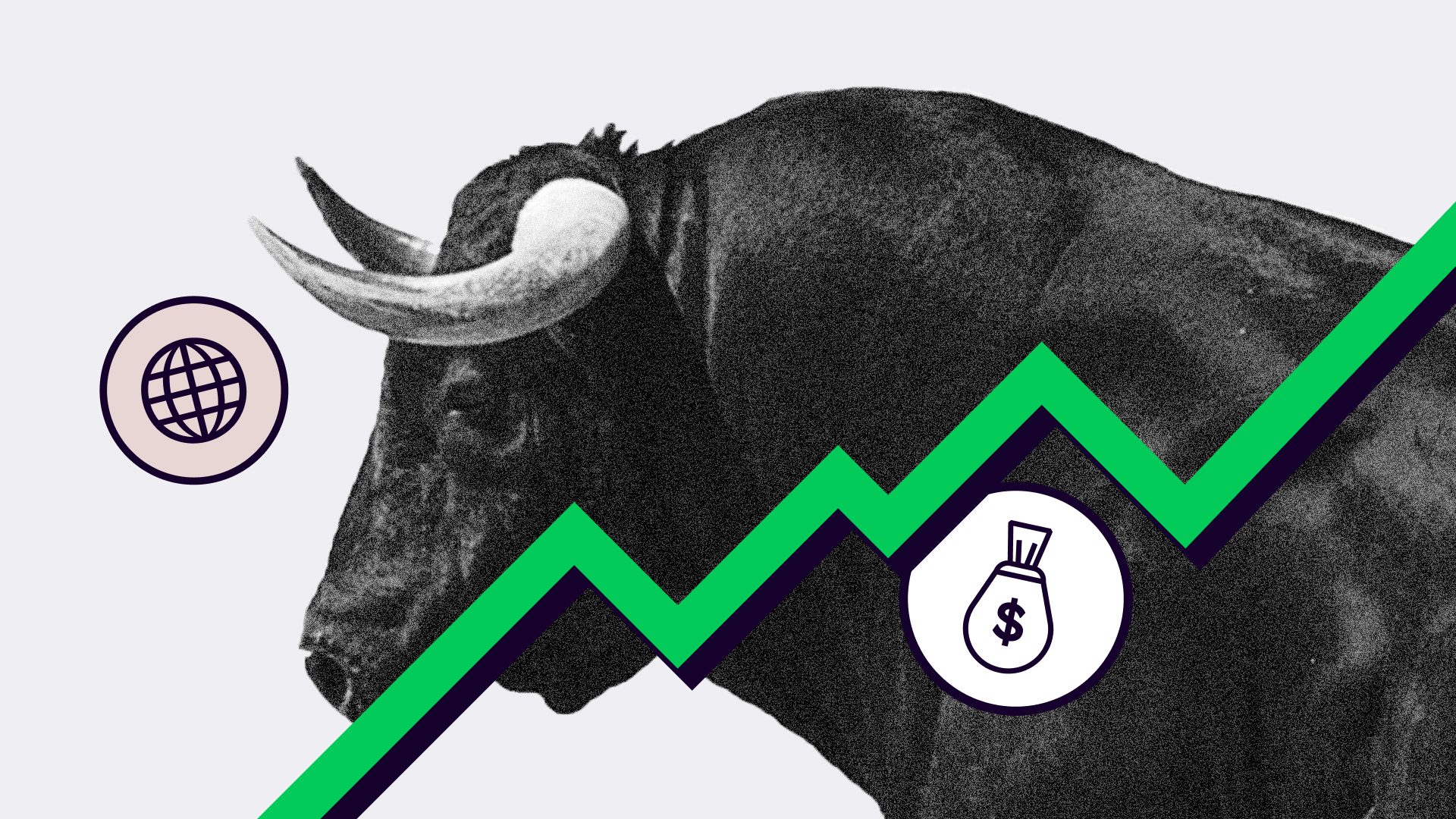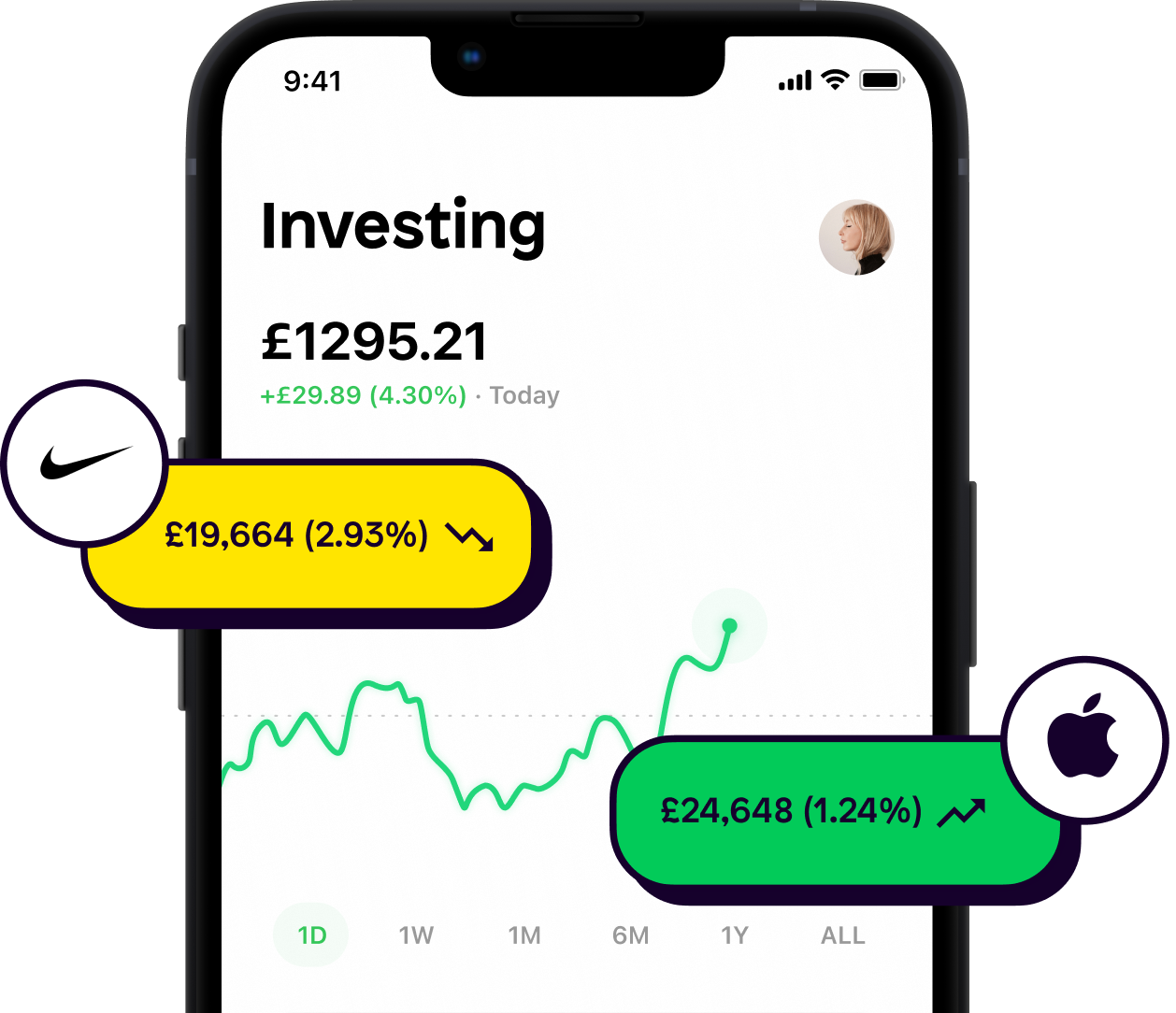Definition of "buying the dip"
Investors who are buying the dip are purchasing stocks and shares when the market is low (or has taken a dip). They are hoping to pick up some bargains and may want to sell the same stocks for a higher price in the future.
It's a bit like when you wait to buy something in the January sales. You know each January there's going to be a sale and for a short time you can buy some items at a lower price. The overall idea is the same; you’re trying to get more bang for your buck.
Unlike the January sales though, we don't know when the stock market is at its lowest, which is why there's always an element of risk when investing. For example, you could see a stock at £50 drop to £40 and think it’s a smart buy, only for it to drop and remain at £30 (trust me, I’ve been there).

Keeping cash spare is investing 101, you never know what costly life event could come your way. If you’re attempting to time the market by buying the dip, then it’s important to keep even more cash spare. That way, you have an allocated amount ready to invest into the market that is separate to your ‘everyday’ cash reserve.
Of course, this differs from the ‘dollar-cost averaging’ strategy that is more about the buy-and-hold life and prioritises time in the market over timing the market!
For other key terms explained, be sure to visit our articles:
Join us!
Ready to join the Shares community? Download the Shares app now.
As with all investing, your capital is at risk.
Shares is a trading name of Shares App ltd. Shares App Ltd is an appointed representative of RiskSave Technologies Ltd, which is authorised and regulated by the Financial Conduct Authority.












